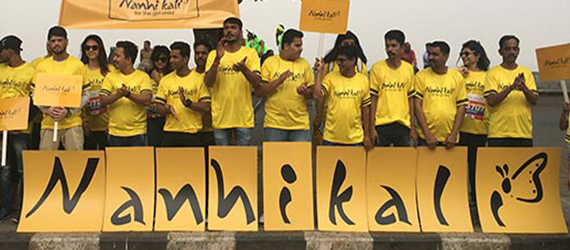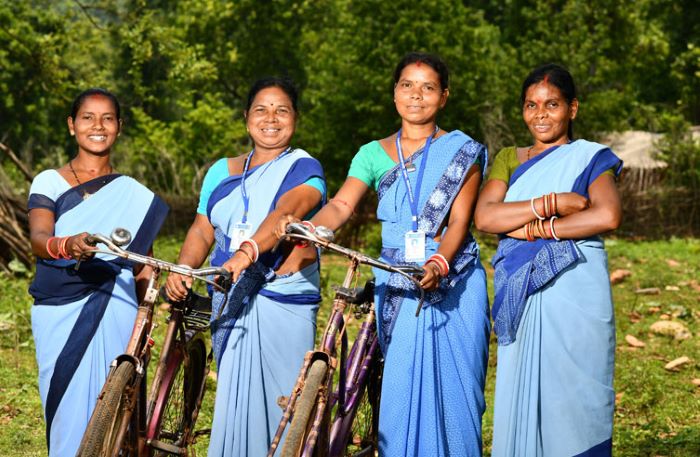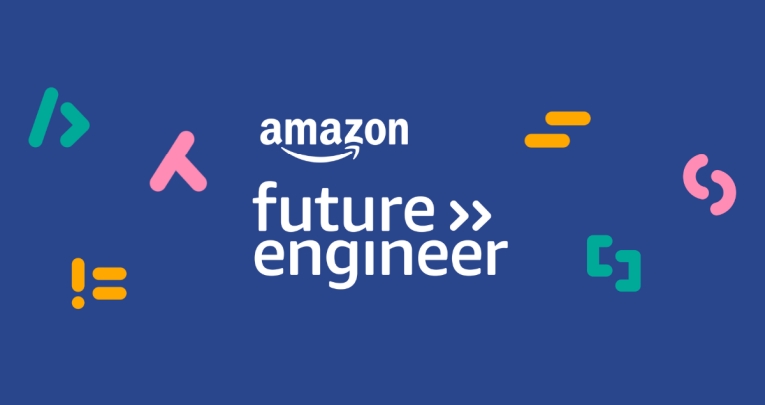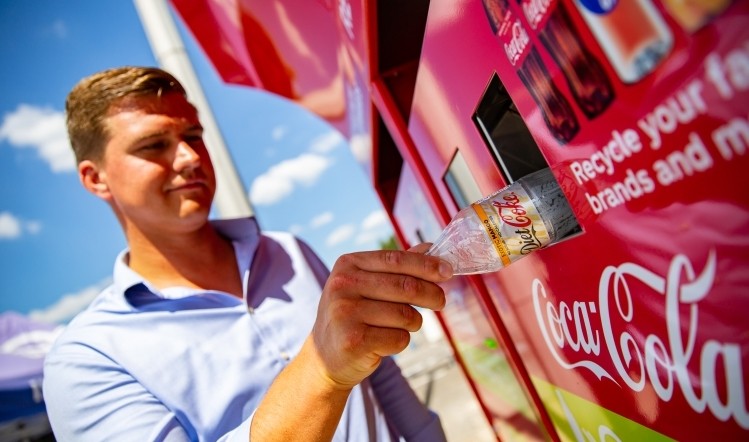Corporate Social Responsibility (CSR) helps gain customer trust, raise awareness, and encourage social change. Corporate Social Responsibility helps not just beneficiary communities and the environment, but the company practising it as well. CSR helps companies in developing credibility with their stakeholders. CSR offers them a chance to showcase the work that they have been doing for social and environmental issues, which in turn builds them a good reputation in front of customers, investors, and the wider community. This can lead to increased sales, improved brand recognition, and a more engaged and motivated workforce.
Corporate Social Responsibility (CSR) allows businesses large and small to enact positive change and in return build customer trust. This is because consumers are more likely to opt for the products or services of a company which they know has been contributing positively to the environment and communities. For example, we would not think twice before purchasing bottled mineral water which belongs to a brand that is known for recycling plastic through its CSR. In short, a socially responsible company earns the respect of consumers and communities.
Several Multinational Corporations operating in India and across the world have been leaving an impact by focusing on combating malnutrition, hunger, taking care of mental health, maternal healthcare, combating climate change, protesting against animal cruelty, taking efforts into waste management, combating plastic and air pollution, combating lack of scope for education and skill development, and lack of access to proper healthcare. Today The CSR Journal takes a look into 10 such companies which have been leaving a positive impact through their CSR.
Top 10 impactful CSR projects
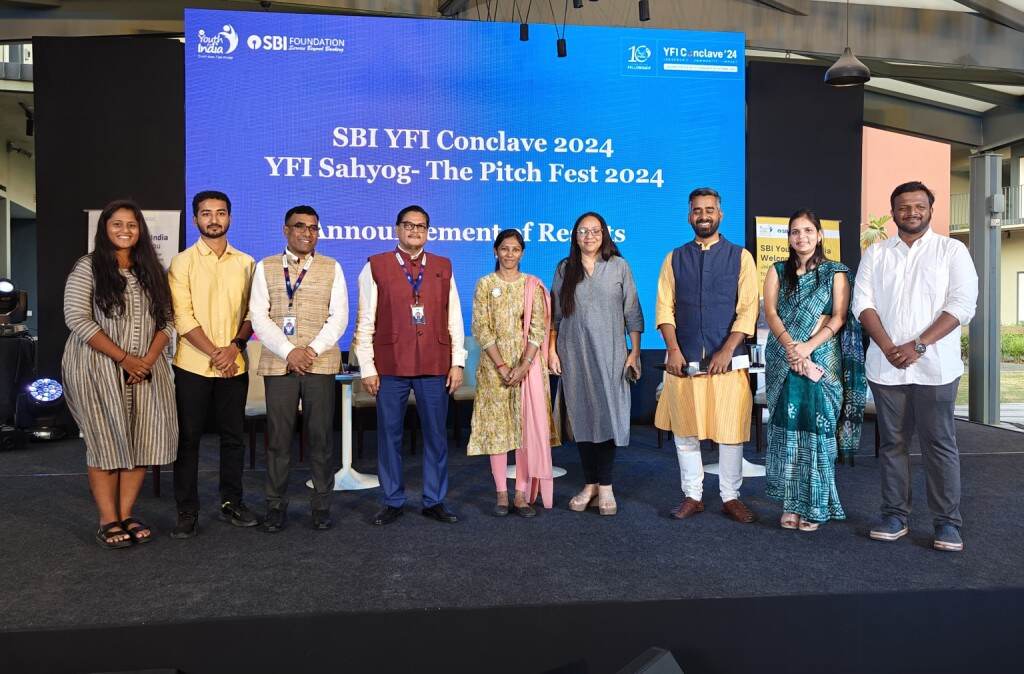
SBI Youth for India – SBI Foundation
SBI Foundation, the CSR arm of the State Bank Group runs its flagship SBI Youth for India Fellowship programme. The 13-month long programme offers an opportunity to educated urban youth– graduates and young professionals-between the age of 21-32 years, to collaborate with rural communities and 13 reputed NGOs across India to drive meaningful change in the society. The applicant for the Fellowship programme must be an Indian citizen, or Overseas Citizen of India (OCI), or Citizen of Bhutan or Nepal.
“The SBI Youth for India programme aims to fill the gap that exists between urban youth’s aspiration to contribute to the development sector and the rural reality, as also supplement the lack of qualified human resources with diverse educational and professional backgrounds in the NGOs working at the grassroots level. This initiative is the flagbearer of hope for those seeking to shape a brighter future for themselves and rural India,” says Mr. Sanjay Prakash, Managing Director & CEO, SBI Foundation.
The SBI Youth for India Fellowship works on 12 thematic areas such as Health, Rural Livelihood, Food Security, Environmental Protection, Education, Water, Technology, Women’s Empowerment, Self-Governance, Social Entrepreneurship, Traditional Craft and Alternate Energy. During the Fellowship programme, the Fellows can work on one of these 12 thematic areas as per their interest.
Prospective Fellows can apply at www.youthforindia.org/register
“The SBI Youth for India programme has witnessed enthusiastic engagement from numerous young Indian applicants from major metropolitan cities in India, Overseas Citizens of India (OCIs), and citizens of Nepal and Bhutan. The programme has made a significant impact with a growing alumni network of over 580+ individuals, impacting more than 1,50,000 lives through the interventions of the Fellows in more than 250+ villages spanning 20 States across India,” as per a recent statement issued by SBI.
Project Nanhi Kali – Mahindra Group
Project Nanhi Kali was founded by Mahindra Group Chairperson Anand Mahindra in 1996 with the vision of creating a world where girls, despite the patriarchal challenges and societal biases they face since birth, are empowered through education. Project Nanhi Kali is a Corporate Social Responsibility programme working to enhance educational opportunities for underprivileged girl children in India.
The project has been dedicated to providing holistic support to economically and socially disadvantaged girls enrolled in government schools across India. The project was started when India had low female literacy level and female workforce participation, along with social issues such as child marriage and child labour.
The CSR project is managed by the Naandi Foundation and the KC Mahindra Education Trust. It is aligned with Schedule VII of the Companies Act 2013, which covers the promotion of education and gender equality. This project also aligns with United Nations’ Sustainable Development Goal 4 (UN SDG 4) which talks about ensuring quality education to all and The UN SDG 5 which aims to achieve gender equality and empower all women and girls.
The project, designed to support underprivileged girls with 10 years of formal schooling has been working for the last 28 years towards the cause of girl child education.
From the academic year 2024-25, Project Nanhi Kali has started empowering girls from lower income strata by supporting them through Grades 6 to 10 with targeted educational initiatives. In alignment with National Education Policy 2020, the educational support provides 21st century skills training, making the transition from school to the workplace more seamless. The skills include financial and digital literacy as well as life skills. The program also integrates physical education to cultivate leadership, teamwork and fitness.
Project Nanhi Kali, which enables underprivileged girls to complete 10 years of schooling, has garnered support from over 250 corporate partners. Project Nanhi Kali works on a cost-effective and collaborative sponsorship model that allows both individuals and corporates to contribute towards supporting the education of girls for no more than Rs. 5400 per month.
Over the past two decades, this project has positively impacted the lives of more than 550,000 girls, affectionately known as “Nanhi Kalis,” across 15 states of India. The target is to educate 1 million girls by 2026.
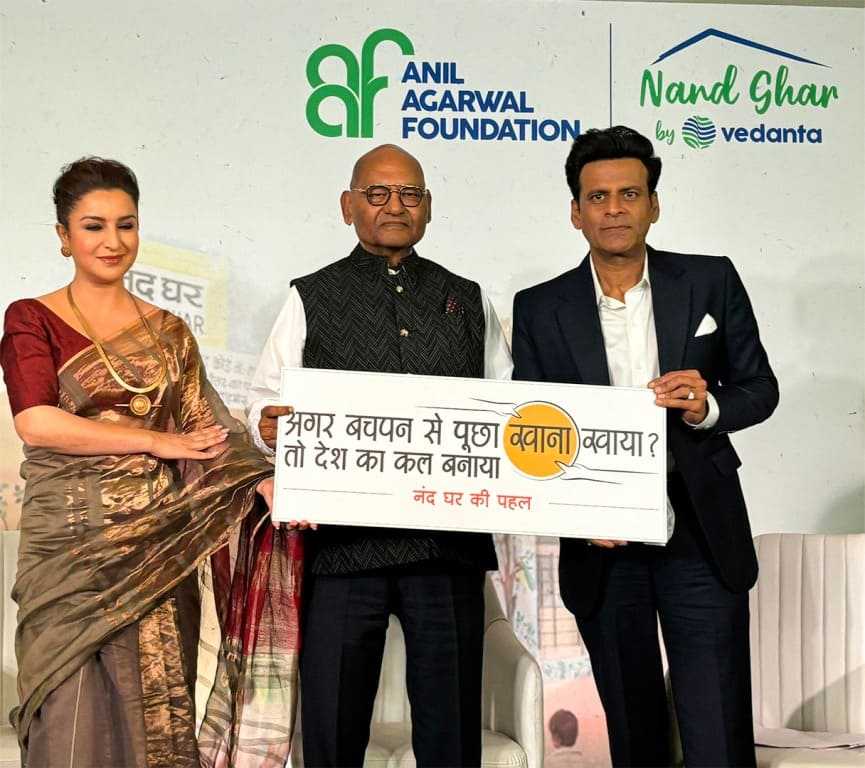
Vedanta – Nand Ghar
Nand Ghar is the flagship project of Anil Agarwal Foundation and has been working towards eradicating child malnutrition, empowering women and providing quality education and healthcare facilities. Nand Ghars have been working to eradicate child malnutrition by ensuring nutritious meals to underprivileged children and aims to transform 14 lakh anganwadis across India.
Project Nand Ghar began its journey in 2015 with the vision to transform the lives of 7 crore children and 2 crore women across Anganwadis in India and are established in partnership with the Union Ministry of Women and Child development. Currently, over 6000 Nand Ghars have been set up across 14 states in India.
The Foundation has been able to reduce malnutrition levels while increasing pre-schoolers’ attendance at Nand Ghars across 14 states in India, as per a recent announcement. Recently, Nand Ghar unveiled a movement with actor noted Manoj Bajpayee. The movement is titled “Agar Bachpan Se Poocha Khaana Khaaya, Toh Desh Ka Kal Banaya”. The Vedanta Group has also signed a MoU with the Bill and Melinda Gates Foundation for achieving a unified goal of eradicating malnourishment from rural India.
The programme aims to transform the Anganwadi network with modern infrastructure and integrated services including e-learning for children, primary healthcare services, and economic empowerment of women. This model of state-of-the-art Anganwadi will function as an education and health centre for children in the morning and as a skill development training centre for women in the second half.
The Nand Ghar project is working to enhance learning abilities and school-readiness in children by deploying e-learning modules and playful learning for education in collaboration with world-class partners. Nand Ghars are also ensuring women undergo entrepreneurship training, to start their micro-enterprises and provide credit linkages.
Nand Ghars offer a holistic set of services to its community members, including e-learning for children, primary healthcare and economic empowerment for women. Nand Ghars have partnered with organizations and are working closely with Integrated Child Development Services (ICDS) to upgrade the Anganwadis services so that the community can utilize it to the best capacity and develop as resource centres for villages.
Tata Steel Foundation – MANSI
With an aim to address the problem of maternal and infant mortality in rural India, Tata Steel Foundation, the CSR arm of Tata Steel Limited has been running an initiative named ‘MANSI’ (Maternal and Newborn Survival Initiative) which reduces mortality among neonates and infants by enhancing the capacity of Government health volunteers (ASHAs/Sahiyas) in the Home Based Newborn Care (HBNC) system. MANSI is equipping community health workers with low-cost home-based practices to reduce neonatal, infant, and child mortality, and improve maternal health, which is a major national health issue.
The programme is currently operational in the states of Jharkhand and Odisha. The company’s flagship programme, MANSI won the National CSR Award in 2019.
Tata Steel, the National Health Mission (NHM), American India Foundation (AIF) and the Society for Education Action and Research in Community Health (SEARCH) have collaborated for the implementation of this project in a public-private partnership model. The project is being implemented in 12 blocks across Jharkhand and Odisha.
The programme focuses on building capacity of existing government voluntary health workers (Accredited Social Health Activists-ASHAs, known as Sahiyyas in Jharkhand). To overcome the constraint caused by low literacy levels of these activists, (Sahiyyas) classroom sessions are hosted where they are provided training, using largely visual/ pictorial aids, on parameters which would address the root causes and underlying reasons for neonate and infant mortality.
The project in its third phase (2021 onwards) has witnessed the participation of almost 2500 sahiyyas and over 200 project staff in Jharkhand’s Kolhan division, covering 38 blocks. In MANSI’s third phase, Tata Steel Foundation has expanded the programme by introducing MANSI Plus, a maternal, neonatal and infant mortality health programme. MANSI Plus is addressing issues like adolescent health, right marriageable age, teenage pregnancies and malnutrition — factors contributing to the mortality rate.
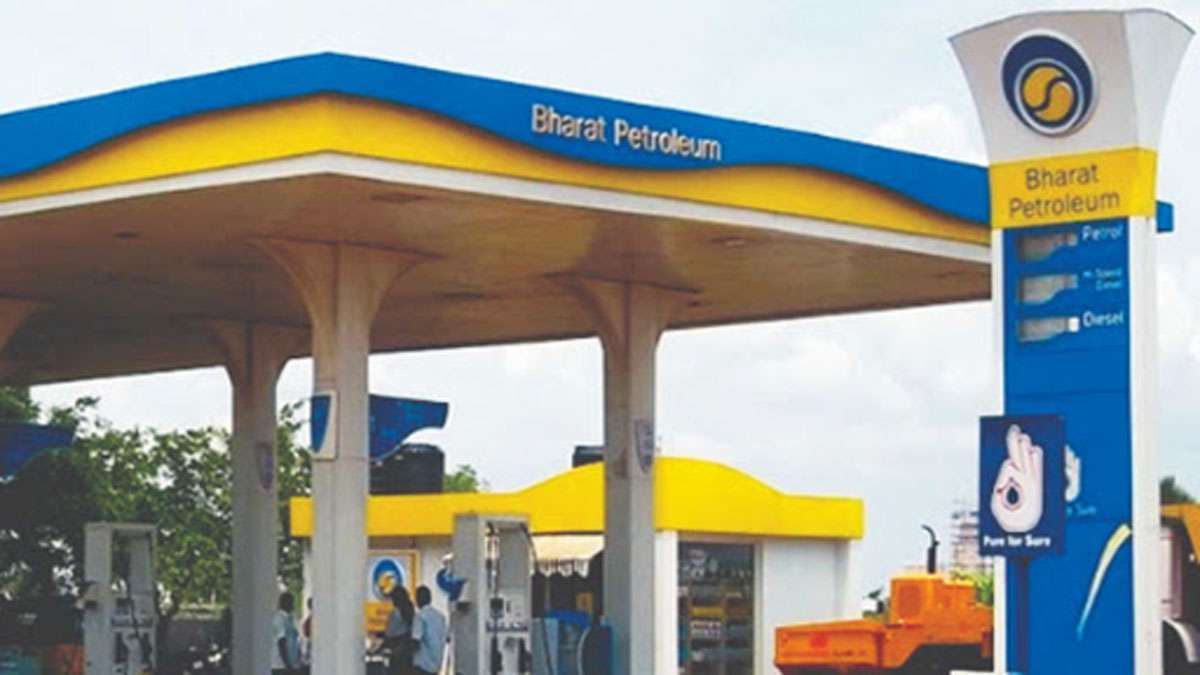 Integrated Cancer Care and Cure – BPCL
Integrated Cancer Care and Cure – BPCL
Indian public sector undertaking (PSU) under the ownership of the Ministry of Petroleum and Natural Gas, Government of India, BPCL (Bharat Petroleum Corporation Limited) supports the CSR initiative ‘Integrated Cancer Care and Cure’ in partnership with the Indian Cancer Society.
BCPCL is supporting one project in Faridabad, Haryana which emphasizes on providing primary healthcare services to general public, cancer screening and awareness programme and palliative care for terminally cancer patients. The team comprises a doctor, nurse and a counsellor, who visits terminally ill patients twice a week to provide services such medical care, psycho-social counselling, etc.
BPCL has been financially supporting more than 450 underprivileged and patients belonging to Below Poverty Line (BPL) families for undergo treatment at 6 hospitals namely Cancer Institute (Adyar- Chennai), Christian Medical College (Vellore- Tamil Nadu), Kailash Cancer Hospital (Vadodara-Gujarat), Sri Shankara Cancer Hospital Res. Centre (Bengaluru- Karnataka), Tata Memorial Hospital (Mumbai-Maharashtra) and Rajiv Gandhi Cancer Institute (Delhi). The project covers the holistic treatment cost of every patient such as surgery, radiation therapy, chemotherapy, medicines, investigation/ test charges, prosthesis & growth hormone (if necessary) and as well as bone marrow treatment (if necessary).
As part of the ‘Integrated Cancer Care and Cure’ programme of BPCL, which includes both preventive and curative Cancer care, more than 700 Cancer screening camps for Oral, Cervical and Breast Cancer were either organised or supported by BPCL at Pune, Kolhapur, Varanasi and Kolkata in 2022.
‘Ugam-Victors of Cancer’ a voluntary cancer survivors’ support group is an integral part of this programme which has been formed by childhood cancer survivors for those who have completed the treatment and has been set-up to empower these survivors.
BPCL under its Corporate Social Responsibility (CSR) activities also supports “Hospital on a train” or “Lifeline Express” which has operation theatres equipped with state-of-the-art medical equipment. The project aims to reduce the burden of avoidable disability in communities in rural India through screening, early identification, medical and surgical intervention along with Information Education Communication programmes on various topics.
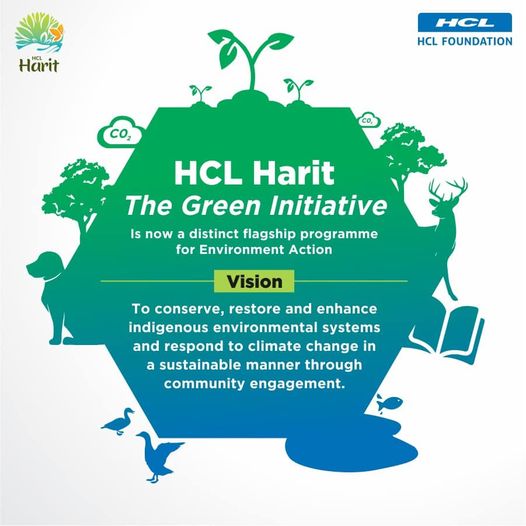
HCL Foundation – Harit
HCL Harit is one of the five flagship programmes of HCL Foundation, which is the CSR arm of HCL Technologies. HCL Harit – The green initiative aims to conserve, restore, and enhance indigenous environmental systems and respond to climate change in a sustainable manner through community engagement. HCL Harit is operational in nine states of India. It majorly focuses on areas like Afforestation and Habitat Restoration, Water Conservation, Animal Welfare, Environment Education and Coastal & Marine Conservation.
HCLFoundation launched Harit – The Green Initiative (earlier incubated under Uday – A holistic urban CSR initiative addressing all forms of urban poverty) a distinct flagship programme for Environment Action; with the vision ‘to conserve, restore and enhance indigenous environmental systems and respond to climate change in a sustainable manner through community engagement’. Harit is working to build scalable and replicable models that are economically viable, environmentally sustainable and inclusive.
Created with an aim to combat the threat of climate change, environmental degradation, and biodiversity loss, Harit is working to conserve, restore, and enhance indigenous environmental systems. The programme is implemented in collaboration with local communities.
In June last year, HCL Foundation renewed its partnership with the National Mission for Clean Ganga (NMCG) and Indian National Trust for Art and Cultural Heritage (INTACH) for another three years to boost native biodiversity in the eco-sensitive regions of Uttarakhand. The extended partnership aims to enhance the positive impact of this initiative in restoring native biodiversity and habitat in Uttarakhand. HCL Foundation aims to plant an additional 10,000 Rudraksha saplings and other native species in the region by 2026. It also plans to organise community awareness programmes to restore degraded habitats and conserve native biodiversity.
Amazon – Amazon Future Engineer programme
The Amazon Future Engineer Programme (AFE) inspires children to explore computer science and coding. The programme is designed for students from underrepresented communities studying in classes 3 to 8. It seeks to motivate them to pursue higher education and careers in computer science. The programme also equips teachers with the skills to support students as they aspire for such careers.
The programme was launched in India in September 2021 to enable a level-playing platform and equal opportunity for every student, by bringing early exposure and access to CS education. It is a comprehensive childhood-to-career program aimed at young people, primarily between the age group of 8 – 24 years, who come from underserved and underrepresented backgrounds. The vision of the programme is that every young person should have equitable access to computer science education and career opportunities.
In 2022, the AFE programme supported 200 girls from low-income families with scholarships to pursue computer science education. The AFE programme offers a financial assistance for students in India. Girl students who have already gained admission into an engineering college through a central or state level entrance exam and have the total household annual income of INR 3 Lakh or less, are eligible to apply for the scholarship. These students are primarily from low-income families and lack the resources to study computer science and pursue careers in the technology industry.
Apart from financial assistance, AFE scholars also get an opportunity to explore internships at Amazon, interact with the technology teams, participate in skills-building hackathons, and get mentored by Amazon experts.
Amazon Future Engineer Scholarship recipients in 2024 in the USA will receive up to $40,000 in paid tuition to attend the college of their choice and a paid internship offer at Amazon after their first year of college to gain hands-on, practical work experience with mentorship from Amazon leaders. Scholars will also engage in networking opportunities with their peers and Amazon employees, receive skills development and mental health resources, and have access to an emergency grant fund for unexpected financial obligations that might prevent them from attending school.
World Without Waste – Coca Cola
Coca-Cola’s Corporate Social Responsibility (CSR) initiatives focus on four key areas: World Without Waste, Sustainable Packaging, Water Stewardship, and Women’s Empowerment.
Under ‘World Without Waste’ programme, the company claims to have collected and recycled 69% of bottles and cans sold globally in 2021, which means it has been able to divert 120 billion bottles and cans from landfills. Coca-Cola is focusing on expanding recycling infrastructure and partnerships in developing countries.
As part of the ‘World Without Waste’ programme, Coca-Cola aims to collect and recycle a bottle or can for everyone it sells by 2030.
The company also claims that it has adopted sustainable packaging and achieved 48% recycled content in PET bottles globally in 2021. Which means, it has been able to reduced greenhouse gas emissions by 20% compared to 2019 levels. Coca-Cola aims to develop circular economy solutions for packaging. Coca-Cola has committed to making all of its packaging recyclable by 2025. Coca-Cola is working with suppliers to develop new packaging materials that are more sustainable and easier to recycle. The company is also investing in new recycling technologies to help increase recycling rates in developing countries.
Apart from the above, Coca-Cola is focusing on Water Stewardship (The company has committed to replenishing the water it uses in its operations), Women Empowerment (empowering women in its supply chain and communities), Sustainable agriculture, Climate solutions and Community development by supporting local communities through various programmes and initiatives.
Coca-Cola’s CSR efforts have been recognized by leading organizations, including the Dow Jones Sustainability Index and CDP.
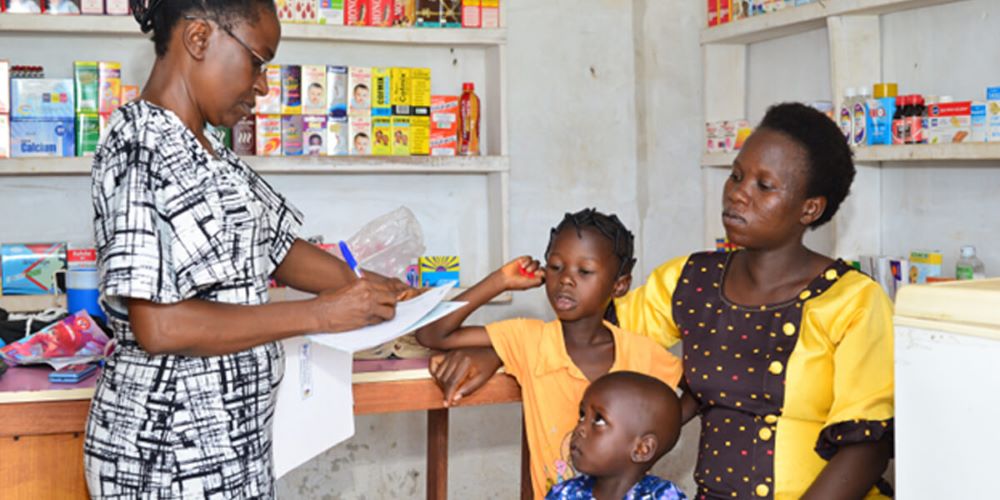
Global Health Innovation Grants programme: Pfizer
Globally renowned American biopharmaceutical company Pfizer’s philanthropic arm, the Pfizer Foundation was established in 1953 and its goal is to help build healthier communities around the world. The foundation supports community-based innovations, promotes health equity and enables equitable access to vaccines.
Through Pfizer’s Global Health Innovation Grants programme, $100,000 is provided each year to twenty organizations to drive solutions to address vaccine-preventable illnesses in their communities.
Since 2016, The Pfizer Foundation’s Global Health Innovation Grants programme is working to support community-based initiatives that aim to improve quality of care and strengthen health systems in lower income countries. In 2023, 20 new recipients of the one-year grant programme have each received US $100,000 to drive innovative solutions that help address vaccine-preventable illness in their communities.
“Over the last seven years, organizations whose established efforts are further supported through the GHIG program have collectively helped to improve access to quality health services for more than 6 million people, trained more than 80,000 health workers, and established more than 1,800 new points of care,” as per Pfizer’s website.

CSR for Education – Apple
American multinational corporation and technology company Apple partnered with Malala Fund in 2018 to support the organisation’s work for girls’ education and equality. In providing support for Malala Fund grants, technology, curriculum and research, Apple is trying to ensure that every girl child’s accessibility to 12 years of free, safe, high-quality education.
Keeping with its commitment to improving education and community development through technology, the company has launched several initiatives aimed at providing access to technology and education to the underprivileged communities.
Apple has partnered with the Malala Fund to provide education to girls in countries such as India, Afghanistan, and Pakistan. Apple has also launched the ConnectED program, which aims to provide iPads, Macs, and other technology to students and teachers in underprivileged schools across the United States.
Talking about its CSR to enhance educational opportunities in India, in FY 2022-23, Apple supported Akanksha Foundation to provide high-quality education to low-income communities in Mumbai, Nagpur and Pune through financial support for teachers and other support. Apple has also been supporting The Akshaya Patra Foundation to ensure nutritious mid-day meals to school children in Puducherry, Telangana, and Karnataka.
The company has also been supporting EnAble India in the provision of high-quality education and training to people with disabilities in Andhra Pradesh, Assam, Bihar, Chhattisgarh, Goa, Gujarat, Jammu and Kashmir, Karnataka, Kerala, Madhya Pradesh, Maharashtra, Manipur, Meghalaya, Odisha, Punjab, Tamil Nadu, Tripura, Uttar Pradesh, West Bengal by providing financial support for training sessions and awareness building with disabled communities. Apple has been supporting Pratham Education Foundation to provide education and training to school dropouts, especially women in Maharashtra, Chhattisgarh, and Odisha.



